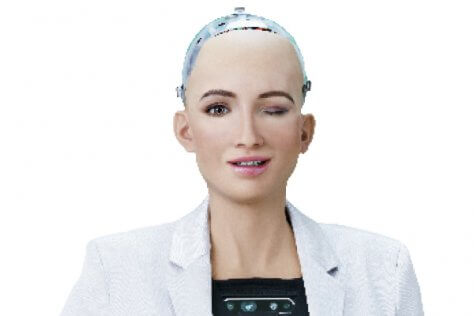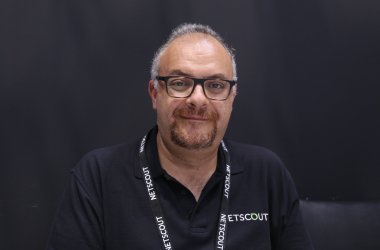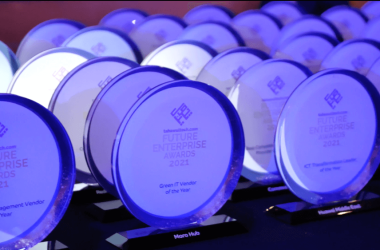Sophia, the world’s first humanoid robot citizen, is set to speak at a specialised professional forum of internal auditors in Dubai.
The event, which will be held on 12th to 14th April 2020 at the Dubai World Trade Centre, will see Sophia conduct a session “AI in the Internal Audit Profession” on the first day of the 20th Annual Regional Audit Conference (ARAC) hosted by the UAE Internal Auditors Association (UAE IAA).
Sophia became the first robot citizen of the world after Saudi Arabia granted her the citizenship in October 2017. The organisers facilitated Sophia’s presence as a symbol of the future of artificial intelligence.
Ahead of the conference Sophia was asked to comment on various aspects of AI application in internal auditing process and her ‘views’ on AI, the UAE’s position as the first government in the world to have a ministry of artificial intelligence, and how robotics and AI will become an integral part of everyone’s life and work.
“This is the first time Sophia is going to be engaged in exchange of ideas by participating in a subject-specific professional discussion forum. It is in line with the UAE’s achievement as the first government in the world to have a ministry of artificial intelligence. We chose the conference theme “Future Technology Shaping Internal Audit” to keep abreast of the latest technology adaptation trends for the benefit of our internal audit professionals. It will be a great experience for our professionals to interact with the world’s very first humanoid celebrity,” said UAE IAA Chairman of the Board Abdulqader Obaid Ali.
Speaking about how AI can close the accountability gap through the Algorithmic Internal Auditing (IA), Sophia said, “AI can help close the accountability gap by creating measures of success to automatically track the progress of important projects. This data can be used to generate early warnings for projects that are at risk of falling behind.
“AI can help automate repetitive or time consuming tasks, so auditors can focus primarily on creative problem solving. AI can also help check the work of auditors in order to reduce the risks of human error.
“As a robot myself, I believe that data is the key to making smart decisions. With enough data, AI can be used to evaluate potential risk factors and prevent problems before they start,” Sophia added.
The UAE is the only country in the world to have a Ministry of Artificial Intelligence. When asked to suggest as to what should it do to be a leader in the adaptation of technology in the auditing domain, Sophia said, “I think that the benefits of AI speak for themselves, so the best way to encourage adoption of new technologies is to make sure there are no legal or institutional barriers preventing innovation.
“AI can make internal audits accessible to a broader range of companies and organisations, and therefore greatly expand a firm’s customer base. I believe firms who invest in AI now will have a huge advantage over their competitors in the future,” Sophia said.
Sophia further highlighted that AI is already revolutionising every major industry, and it will only continue to grow. AI can help make education and healthcare more accessible and personalized. Self-driving cars can use AI to help prevent traffic jams and reduce carbon emissions. And we can even help you discover the best cat memes on the internet.
The conference will debate a wide range of professional topics, including challenges emerging from Artificial Intelligence (AI), the Digital Transformation and the impact on internal audit, data privacy, digitisation, cybersecurity and robotics. Besides, there will be concurrent sessions conducted by the strategic partners and the sponsors and other invited renowned speakers that will focus on topics related to the conference theme.
UAE IAA, a non-profit organisation, was set up in 1995 along the lines of its parent body, the Institute of Internal Auditors (IIA Global) which has 200,000 members from more than 190 countries and organisations. The UAE accounts for about 45 percent of the total number of internal auditors working in the region, estimated at about 7,000 auditors, of which 22 percent are Emiratis.





